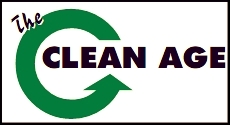Most of us brush our teeth a couple of times each day without much consideration. It’s a thoughtless, mundane job. So, when you’re tube of toothpaste is finished and it’s time to replace your toothbrush there’s simply a toss into the garbage bin. What happens next?
Let’s consider how many toothbrushes might be used in Australia each year. There’s around 23 million people living in Australia all of whom use at least one toothbrush a year. That equates to about 350 tonnes of waste each year. The plastic is often an extremely hard bonded plastic that takes a significantly long time to break down; likely to be more than your lifetime. There are many reports from fisherman that toothbrushes are one of the major waste products floating in the ocean.
Some toothbrushes could be made of recyclable products but your local recycling depot needs to be able to handle the task. A toothbrush is made of up the plastic handle, nylon bristles and a metal staple holding the bristles in place. This presents a complicated recycling process and may not be available in your area. Toothpaste tubes present a similar problem as they must be shredded prior to washing the residual product left on the plastic. Once again, not every recycling plant is capable of dealing with this product. It’s best if you call around your local waste management plants to check on their capabilities. If you manage to find a depot in your country that manages it, you could probably gather a collection of waste and send it to them as a parcel. What a lovely gift!
Bamboo toothbrushes present an environmentally-friendly alternative, but there are certain things to watch too. Bamboo may not come from a sustainable source. The bristles may be made from pig hair which is not going to be good news to a vegetarian or vegan. Some manufacturers claim to have bristles made from Nylon-4, which is degradable in dirt in approximately four months, while actually using Nylon-6, which is resistant to degradation in a natural environment. Don’t hesitate to call the manufacturer to check some of these matters. If their labelling is contrary to the truth, then the manufacturer would have to deal with misleading and deceptive conduct accusations.
Think carefully next time you’re brushing your teeth. What items are using every day that could be improved for the sake of the environment? Don’t let your personal legacy to the Earth be a toothbrush for each year you’ve lived. I’m sure you’re worth far more than that.

